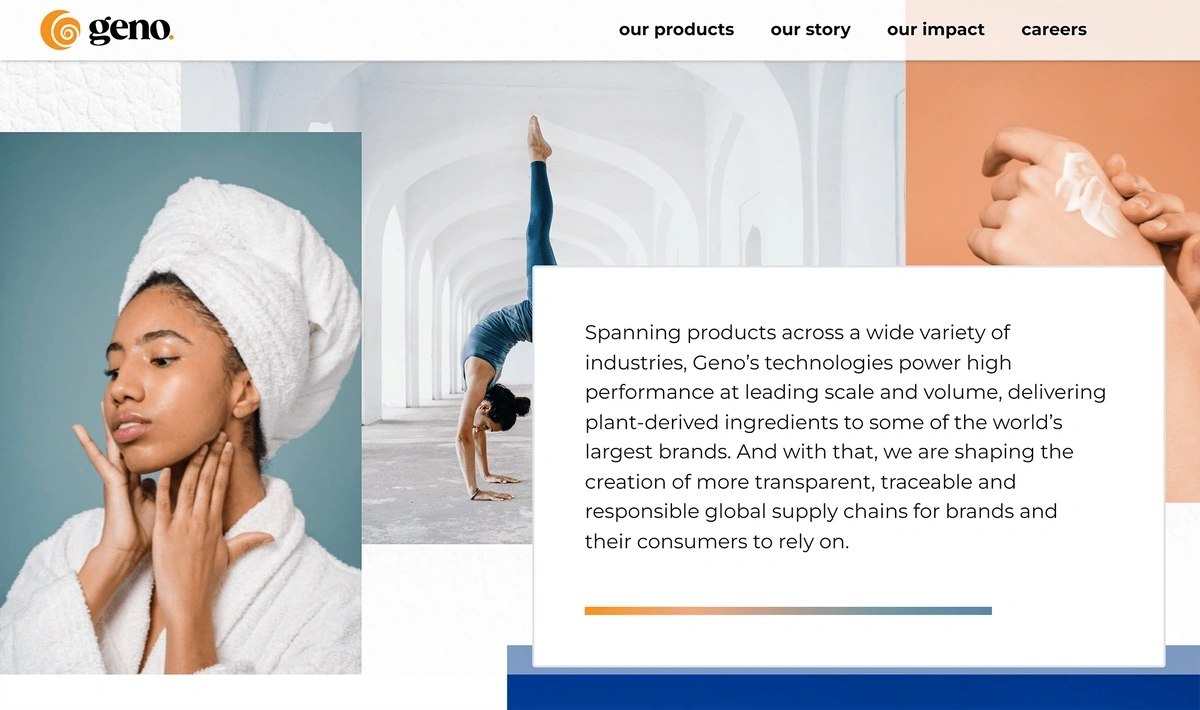1. Continued Emphasis On Natural and Organic Ingredients
According to the Environmental Working Group, the average person applies nine personal care products to their body daily. One-quarter of women apply 15 or more products each day.
In just nine products, there’s an average of 126 unique ingredients.
Recent survey data shows that more and more women are questioning what exactly those chemicals are and what they mean for their bodies and the planet.
More than 65% of consumers are looking for environmentally friendly brands, and 55% are willing to pay more for sustainable products.
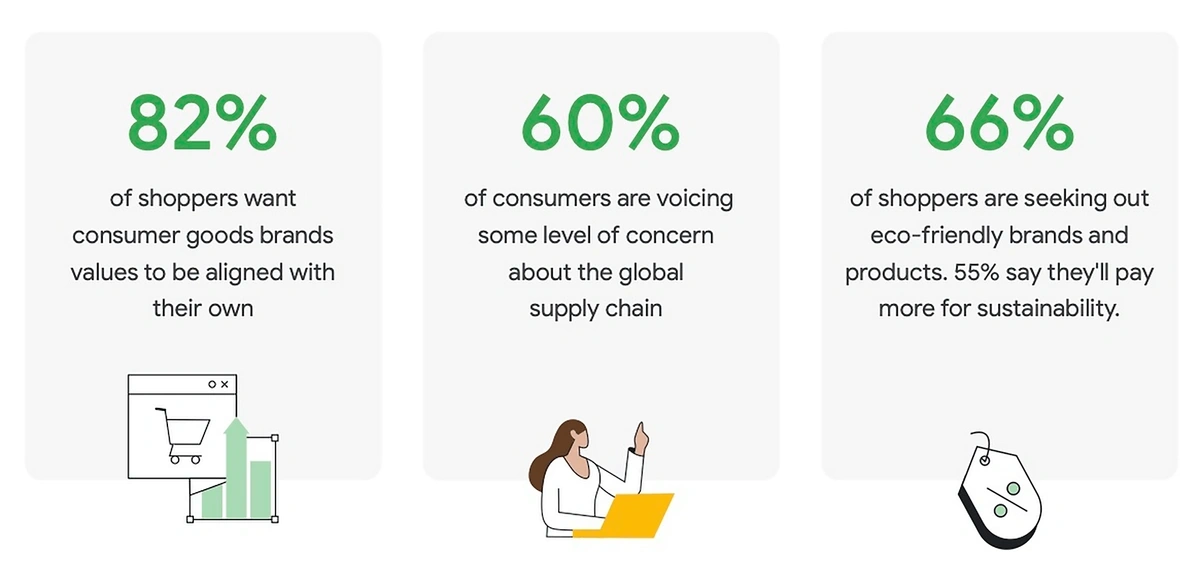
Ingredients are a big part of sustainability for consumers.
In fact, a recent report from Nosto said that 68% of people are looking for products described as “clean” and 59% of people are influenced by products that are described as “natural and organic”.
The global market value for natural beauty and cosmetics is poised to grow to $59 billion dollars by 2031.
Dozens of beauty brands are already jumping on the trend to create sustainable, natural, and organic products.

Estimates show almost one-third of beauty products are now labeled “clean” and that number is predicted to increase 12% by 2027.
Walmart recently launched a clean beauty shop that offers 900 products that are free from ingredients on the store’s “Made Without List” like formaldehyde and PFAS.
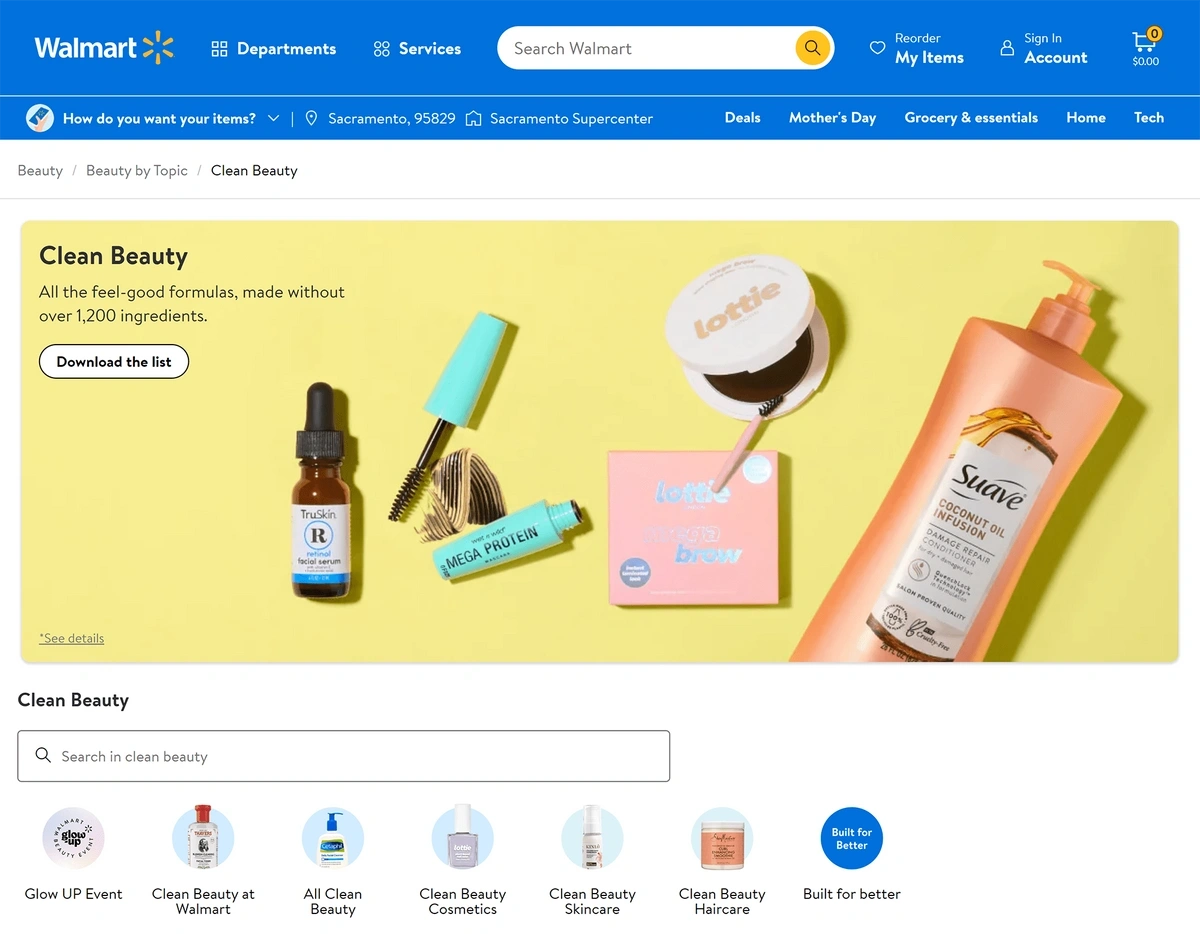
2. Hyper-Personalization with AI and AR
Research from McKinsey shows that 71% of today’s consumers expect to receive a personalized experience when they shop.
McKinsey’s research shows that personalization can have a direct impact on the customer life cycle.
Nearly 80% of consumers are more likely to make repeat purchases from a company and recommend that company to a friend or family member if the company provides a personalized experience.
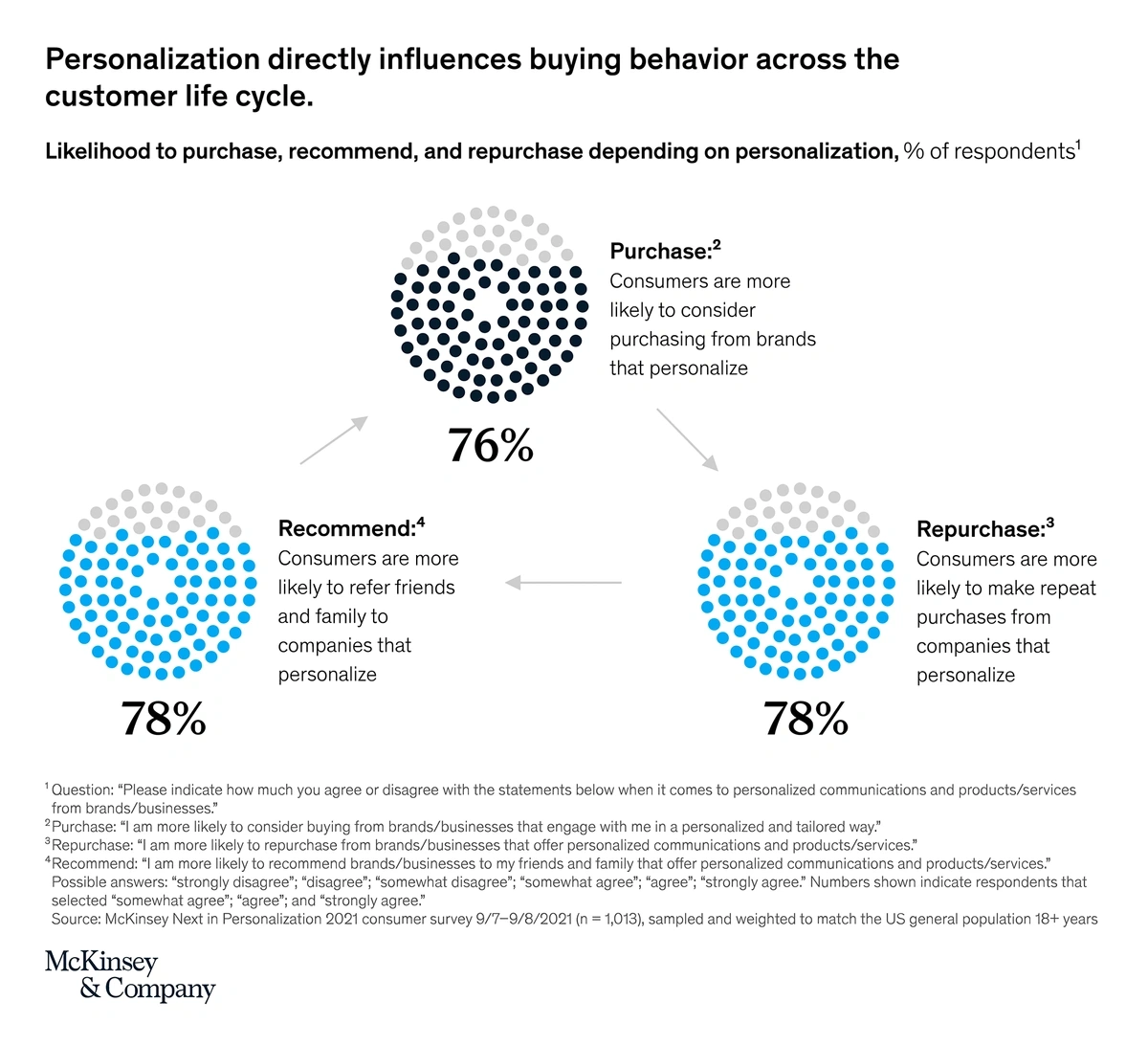
More specifically relating to the beauty industry, 58% of shoppers say they are more likely to buy from a business that offers an online quiz to recommend specific beauty products for them.
And, 45% of respondents say they are more likely to purchase from a business that offers a virtual reality or AI experience that allows them to try out a product online.
Beauty brands are implementing these personalized experiences in high-tech ways.
Haircare company Prose invites customers to take a 25-question quiz and then analyzes over 80 factors to create custom formulas for shampoo, conditioner, and other hair care products.
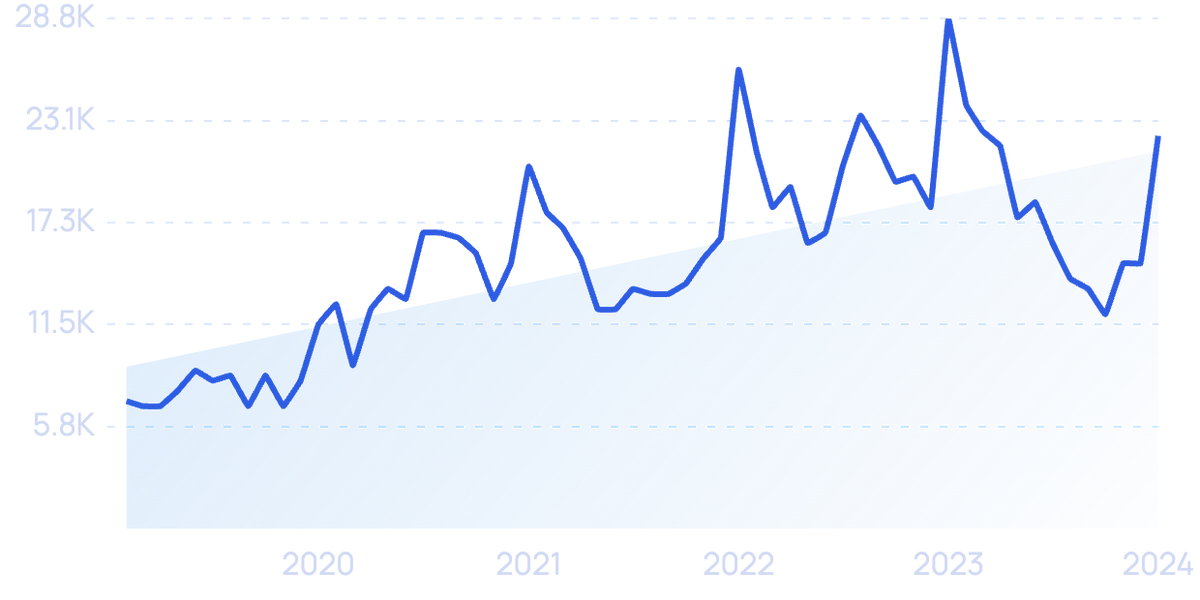
The tech company Revieve has created several AI/AR-powered interactive modules as part of their Digital Health-Beauty-Wellness Platform. This covers customers interested in skincare, makeup, sun protection, and nutrition.
Beauty corporations like Murad, Living Proof, Ulta Beauty, and Schwan Cosmetics have recently partnered with Revieve to provide true-to-life try-on opportunities and personalized recommendations.
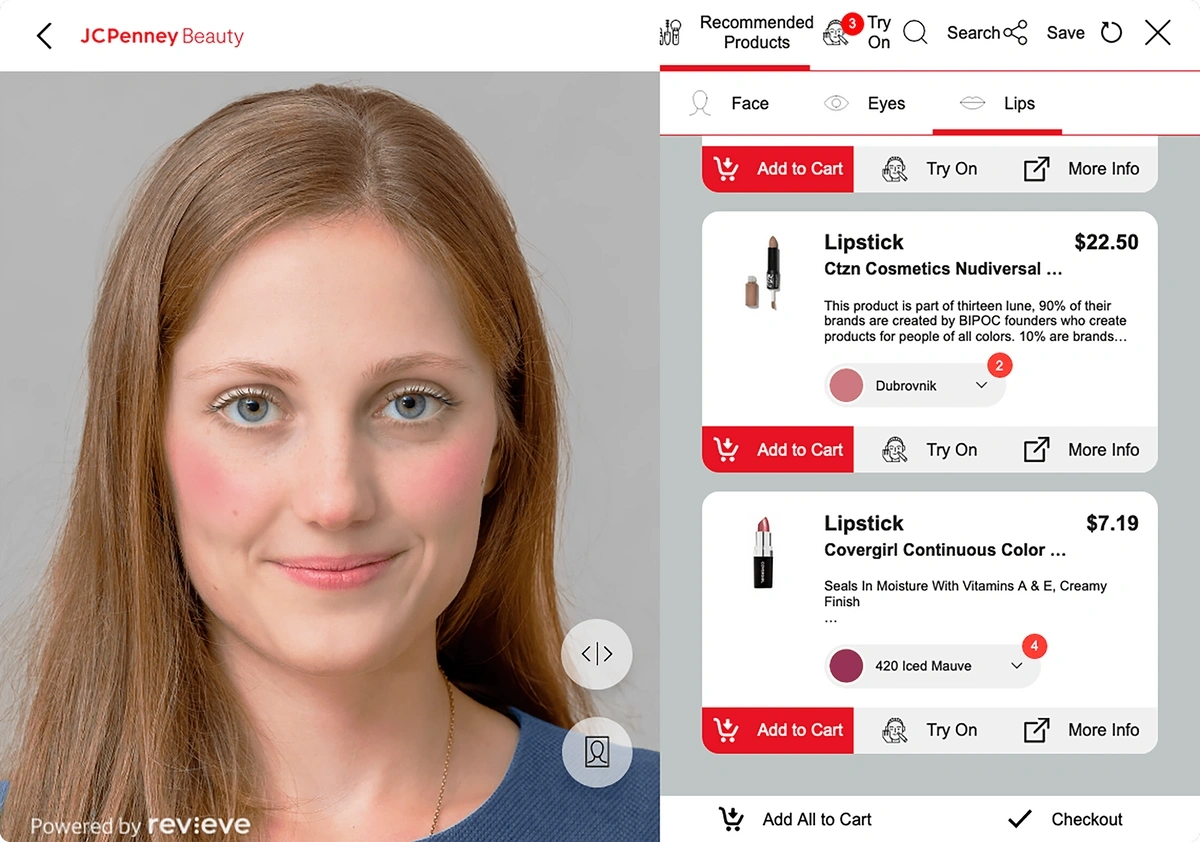
Other beauty brands are combining tech solutions with the latest skincare science to offer personalized products.
For example, Pure Culture Beauty offers an at-home skin test that measures skin type, skin condition, and the health of the skin barrier. Customers also answer a series of questions about their concerns, lifestyle, and environment.
The test takes 20 minutes to complete, and results can be uploaded directly to the Pure Culture Beauty website. After that, customers are given the option to purchase custom skincare formulas based on the results of their analysis.
For an even more personalized skincare test, consumers can order the microbiome test from Dr. Elsa Jungman.
Consumers take a swab of their facial skin and send it back to the company. The sample is analyzed and tested for the top 10 bacteria and fungi that are commonly found living on the skin. Personalized recommendations are provided after the results become available.
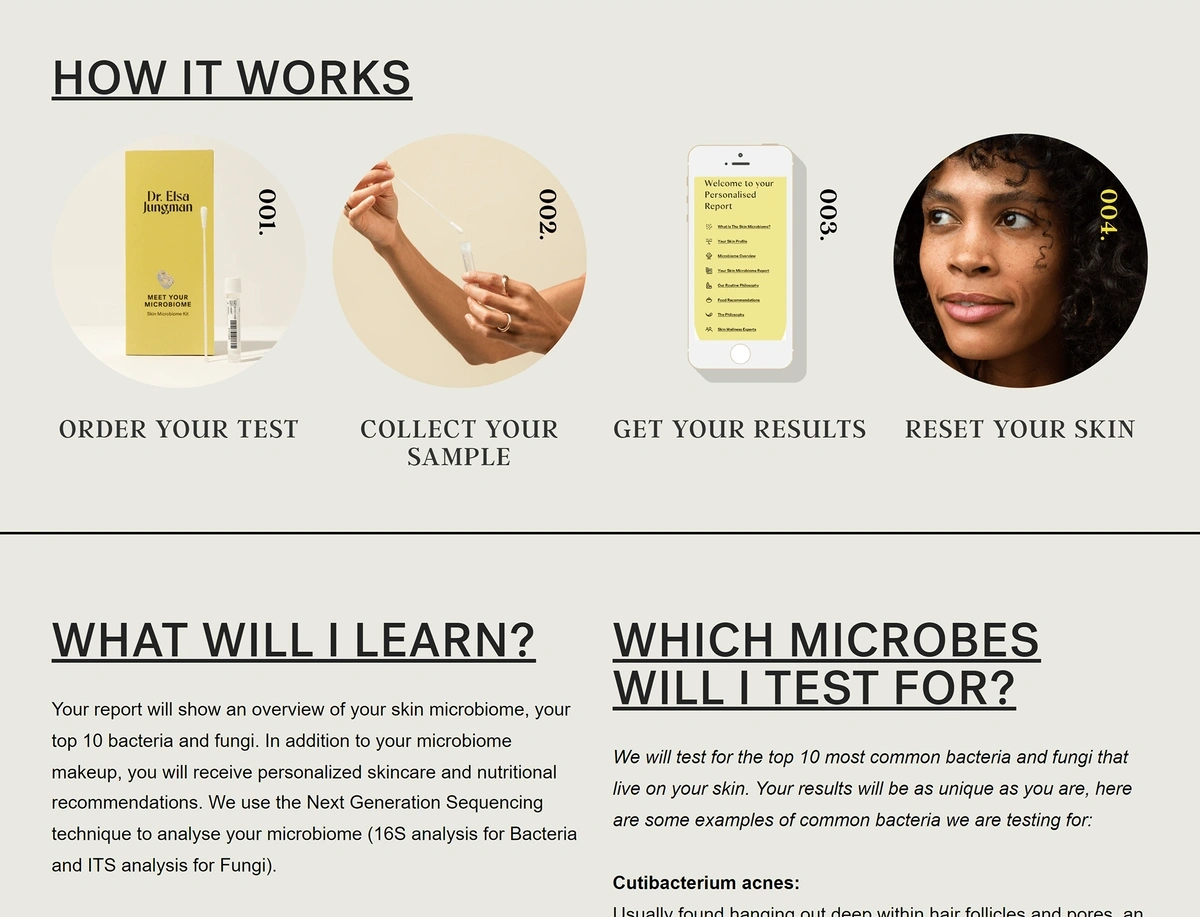
3. Biotech Innovations with a Focus on Sustainability
The use of science in the beauty industry is nothing new. But the current biotechnology trend is taking the science of beauty to a whole new level.
This trend pairs directly with the megatrend of sustainability.
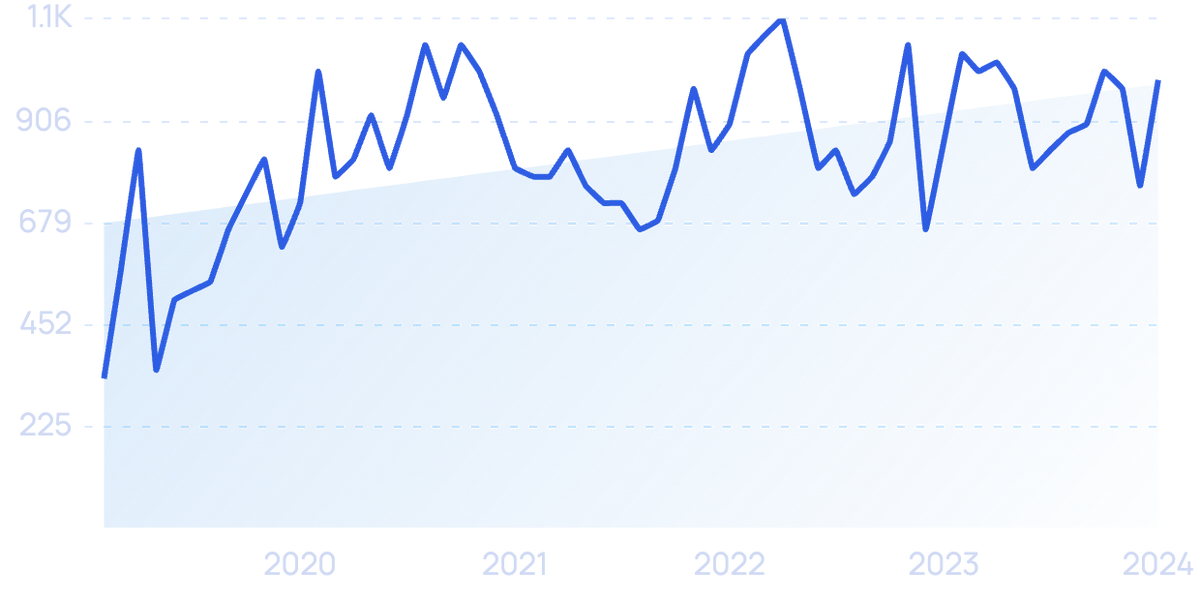
Most often, it’s not sustainable to grow beauty ingredients on a large scale. There’s considerable land destruction, water usage, and pollution.
However, the biotech movement is prompting researchers to find beauty ingredients that already exist in organisms in nature. Then they are able to replicate that natural process and mass produce ingredients in a lab.
For instance, skincare company Algenist uses biotech methods to manufacture their patented ingredient, Alguronic Acid.
The ingredient was originally found in microscopic algae. The algae use the compound to protect and regenerate their cells all while living in some of the harshest environments on the planet.
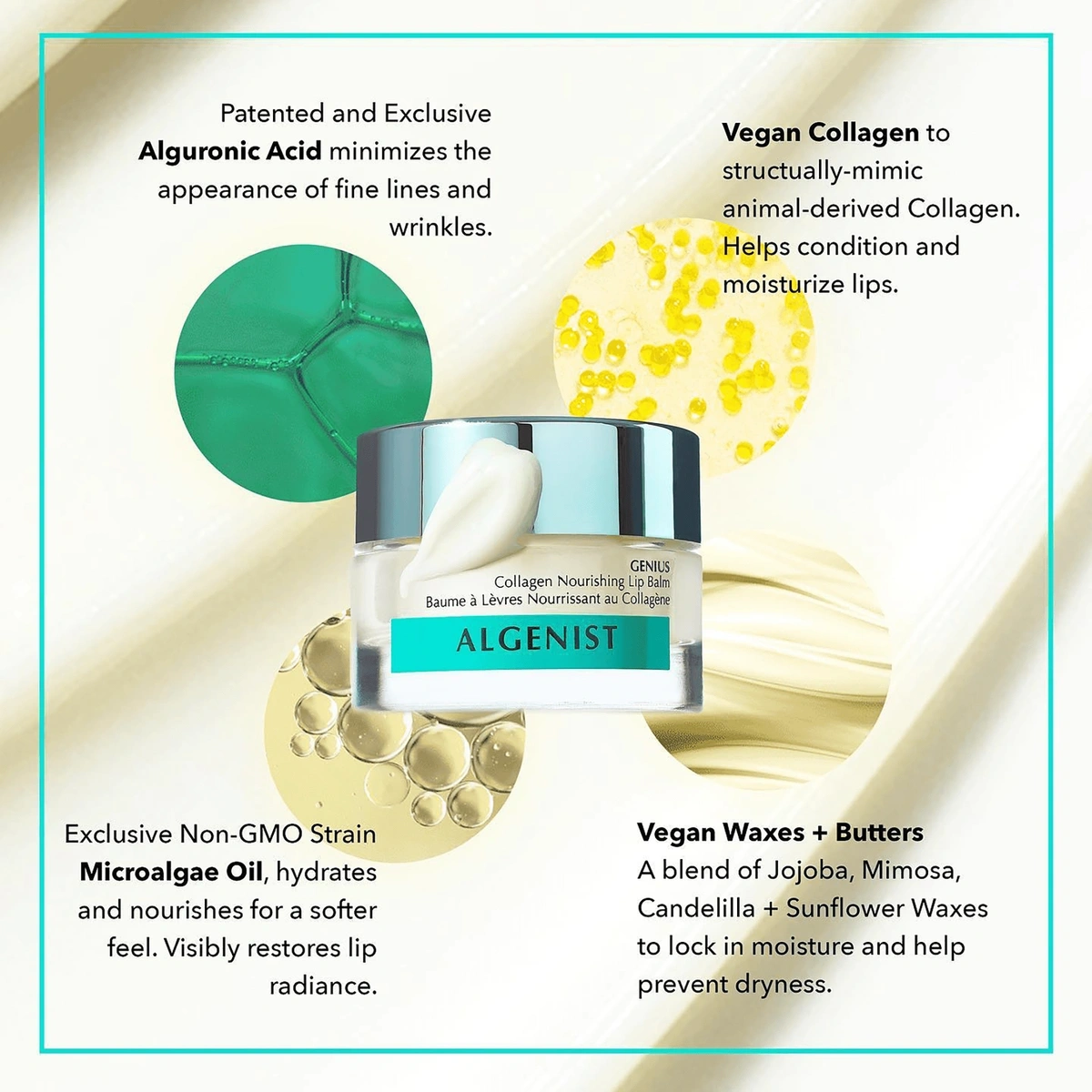
Data from Algenist shows the ingredient improves overall skin health by 51% and reduces the appearance of fine lines and wrinkles by 35% in 12 weeks.
Evolved By Nature is another skincare company using biotech research to bring sustainable compounds into its products.
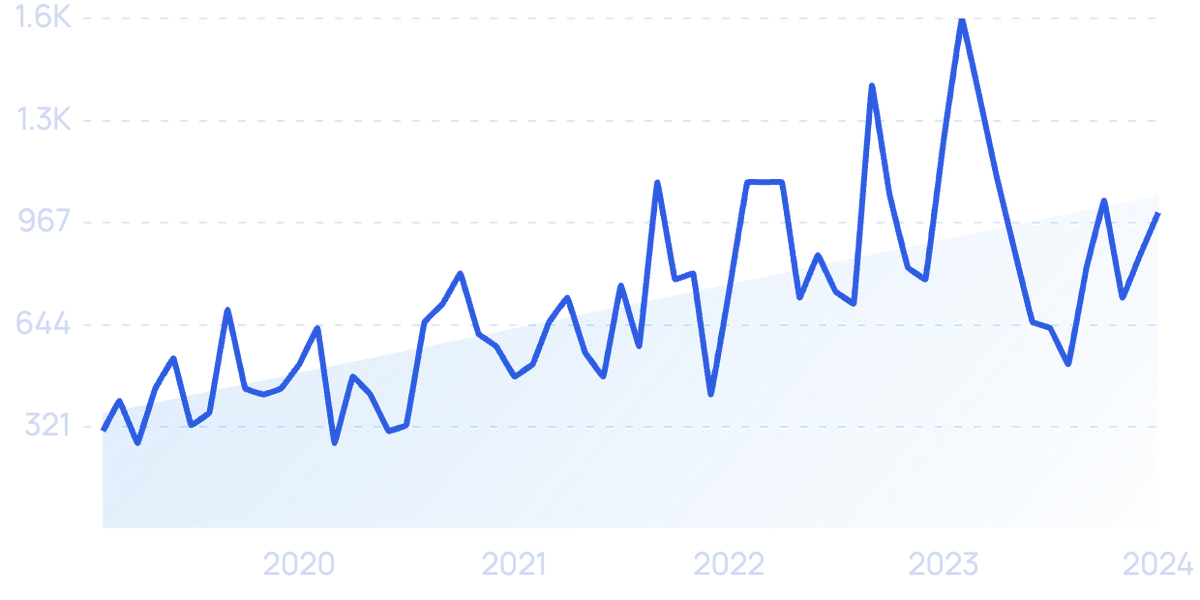
In October 2022, the company released its Barrier Redux Emulsion featuring Activated Silk 33B as a main ingredient.
It’s made from isolating peptides in renewably-sourced silk protein and serves as a replacement for petroleum-based ingredients. The activated silk helps the skin to protect itself and hold onto hydration while also being able to breathe.
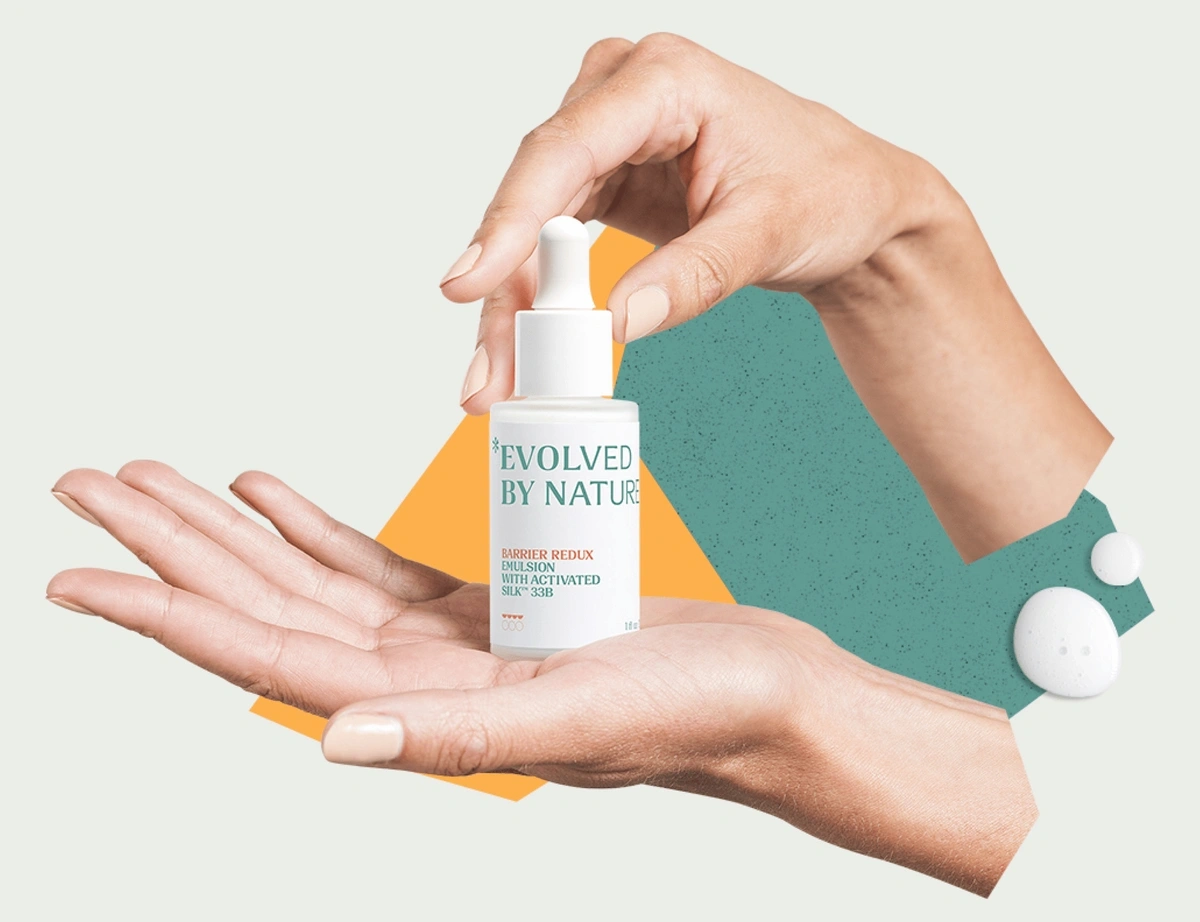
The company has raised $190 million in funding, including a $120-million round in June 2022.
The biotech trend is even catching on with large personal care corporations like Unilever.
The company announced a partnership with a San Diego-based biotech firm called Geno in mid-2022.
Geno uses a fermentation process to create surfactants used in beauty products. Like other biotech beauty products, their ingredients are seen as an alternative to non-sustainable ingredients like palm oil and fossil fuels.
In early 2023, L’Oreal announced they’d be joining the partnership as well.
